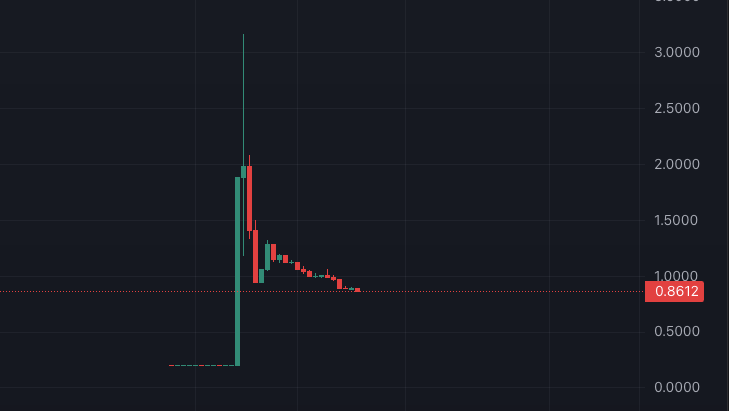
CEX vs. DEX
Centralized Exchange (CEX)
Knowing the difference between a CEX and a DEX can be confusing when you’re new to crypto. A centralized exchange (CEX) is a platform where you can buy, sell, and trade cryptocurrencies. It is managed by a company that acts as a middleman, handling your transactions, wallets, and funds. CEXs are usually convenient and beginner-friendly, but they require you to trust the company in much the same way you’d trust a bank.
Most people’s first step into the crypto world involves transferring money from their bank to a CEX—essentially moving from one centralized entity to another. However, unlike banks, centralized exchanges may not be subject to the same strict regulations, especially if they are based in a different country. Because the exchange holds your private keys, you don’t truly own your crypto until you transfer it off the platform. To take full ownership of your funds, you’ll need to move them into a self-custody wallet. Many people hesitate to do this because the process can feel overwhelming.
Be cautious when choosing a CEX, especially if you plan to store funds there for any length of time. Research the exchange’s reputation and track record for avoiding shady practices, such as freezing user accounts. Also, keep in mind that CEXs can be hacked or go bankrupt—another strong reason to consider self-custody for your crypto.
One reason some users transition to decentralized finance (DeFi) is that CEXs often limit the selection of cryptocurrencies they offer. This limitation can act as a safety net for beginners, depending on the exchange. For example, Coinbase tends to list higher-quality cryptocurrencies, while some overseas CEXs may list anything with high trading volume. People often assume that buying a cryptocurrency on a CEX means it’s reliable, but the reality is that many exchanges will list coins simply to profit from transaction fees generated by high trading volume.
Some popular CEX examples include: Coinbase, Crypto.com, Binance, and Kraken.
Decentralized Exchange (DEX)
A decentralized exchange (DEX) puts control back in the user’s hands. It’s a peer-to-peer marketplace where cryptocurrencies are traded directly between users without relying on a central authority. To use a DEX, you connect your self-custody wallet to the exchange, select the cryptocurrency you want, and trade it. Transactions occur directly between users via smart contracts on a blockchain.
Unlike CEXs, DEXs allow users to retain full control of their funds. Since trades are executed from your wallet, there’s no risk of an exchange freezing your assets or losing your funds due to hacking or bankruptcy. There’s also no central authority deciding what you can or can’t buy. You’re free to trade any token that has a liquidity pool on the DEX, giving you access to a much wider selection of cryptocurrencies than most CEXs offer.
While using a DEX, you’ll still pay transaction fees in the native token of the blockchain you’re trading on, as well as gas fees for any transfers. Interestingly, many centralized exchanges purchase their cryptocurrency supply from DEXes because new coins are often listed there first.
Examples of popular DEXs on different blockchains include:
- Uniswap (Ethereum Network)
- PancakeSwap (Binance Smart Chain)
- VVS Finance (Cronos)
- Raydium and Jupiter (both for the Solana chain)
Note: In order to use a DEX you must have a self-custody wallet.
S Taylor is a crypto trader with five years of experience, having navigated a wide range of market dynamics and witnessed numerous scams firsthand. As a former victim of scams, S Taylor turned their focus to blockchain forensics and Solidity Smart Contract development, gaining deep technical expertise in the field. With a unique insider’s perspective, they’ve been involved in various crypto projects, where they’ve seen how developers can exploit vulnerable investors.
S Taylor is also the published author of Meme Coins Made Easy, a comprehensive guide that teaches beginners about cryptocurrency and how to identify and avoid common scams. S Taylor is dedicated to sharing valuable insights and helping the crypto community stay informed and safe.
Disclaimer: This article is for informational purposes only and should not be considered legal, tax, investment, or financial advice.







4 thoughts on “Difference Between a CEX and a DEX”
Comments are closed.